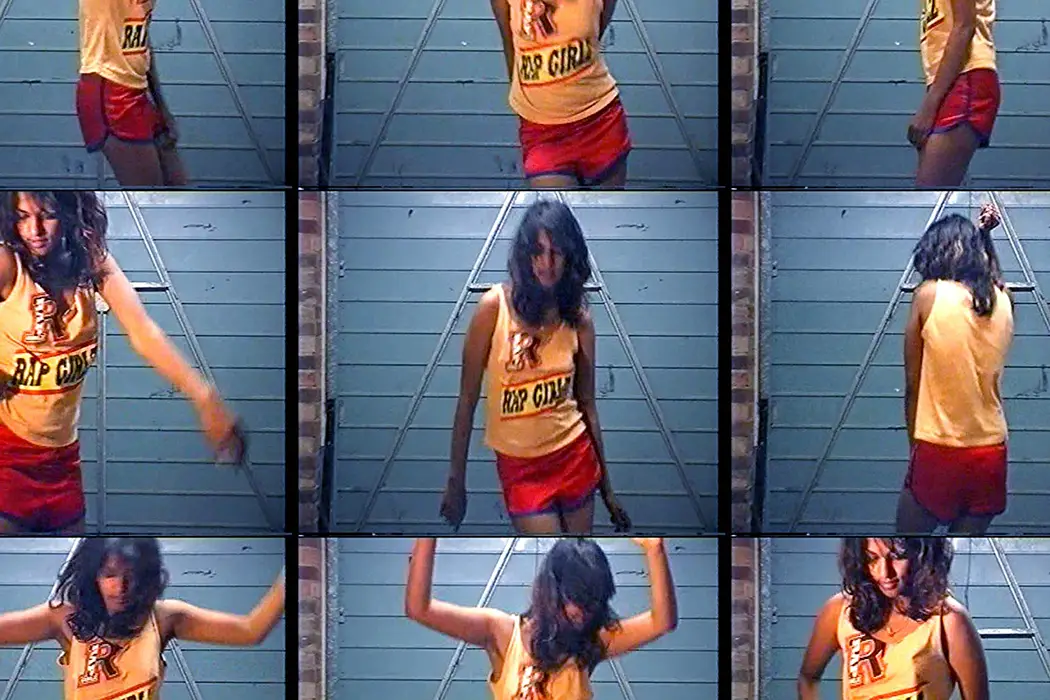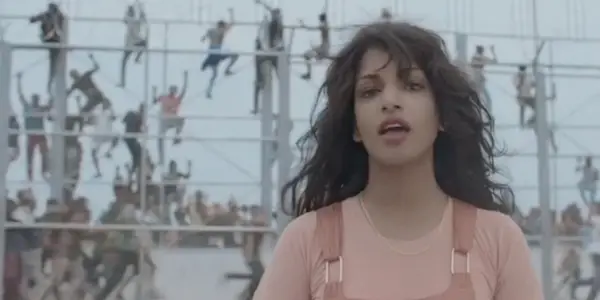MATANGI/MAYA/M.I.A: An Artist’s Struggle To Be Heard

It took me a while to discover the wonderful world…
Steve Loveridge is credited as the director of Matangi/Maya/M.I.A, but that title is an awkward fit. After all, most of the footage was actually directed by its star. Before launching herself as a musician, M.I.A had aspirations towards becoming a documentary filmmaker; from her teenage years onward, a camera has never been far from her side. The movie has been fashioned from this exhaustive personal archive. It could be argued that she is the real director here, and Loveridge the editor.
The film has been a long time in the making. In 2013, frustrated by the lack of progress, Loveridge was widely quoted as saying he ‘would rather die’ than continue to work on the project. For her part, M.I.A has seemed unsure about the end result; in an music.
Matangi/Maya/M.I.A has finally arrived in cinemas, at last giving audiences the opportunity to judge for themselves.
Search For Identity
M.I.A. was born Matangi Arulpragasam, in Sri Lanka, 1976. She lived in the country until 1985, then moved to London with her mother and siblings.
The move was necessitated by her father, Arul Pragasam, a prominent member of the Tamil Resistance Movement, who were embroiled in a bloody battle against the Sri Lankan government. Staying in the country was a serious risk to the lives of M.I.A. and her family; they came to Britain as refugees.
It didn’t take long for the Arulpragasams to settle in London, but the absence of their father continued to leave a mark. M.I.A. interviews her brother and sister about their feelings towards Arul; to put it kindly, neither are big fans. M.I.A. on the other hand, understanding the power of her personal narrative long before she became famous, is almost grateful to him. ‘He’s made us damn interesting, he’s given us a bloody background!’, she exclaims to camera. She isn’t wrong.
As she grew up, M.I.A. never stopped being curious about Sri Lanka, or fascinated by thoughts of what her life would have been like if she had stayed. In 2001 she paid a visit, bringing her camera with her. She was excited to meet up with the extended family she’d not seen for sixteen years, and the trip opened her eyes to the struggle they’d been facing. Her grandma had lost an eye to police brutality. M.I.A. experienced their violence herself, when she was groped on a crowded bus.

For the most part this documentary is chronological, charting M.I.A.‘s life from her teen years in the nineties to the present day. This 2001 trip to Sri Lanka, however, is returned to throughout the movie. Matangi/Maya/M.I.A. presents this visit as the formative event of the artist’s life; everything she did afterward, her music and her political activism, stem from it. Returning to that footage is a constant reminder of how that trip changed everything.
Famous, Frustrated
M.I.A. was introduced to the business through her friendship with Justine Frischmann from the Britpop band, Elastica; she went on tour with the group, and used her camera skills to make music videos for them. Hanging out with her friend was fun, but M.I.A. found herself continually frustrated that the band has such a big audience and weren’t saying anything.
Her own fame would arrive with her 2005 record Arular, and intensify with 2007’s Kala (both albums named after her parents). Despite M.I.A. having had a long, successful music career, in the documentary, Loveridge pays it little attention. There are a few clips from her videos and footage of her performances at Coachella; yet for a movie about a musician, there is a surprising lack of music.
Loveridge is more concerned with her fame, and the way she has juggled it with her ongoing activism. M.I.A.‘s background and her celebrity made her uniquely qualified to bring the world’s attention to the Sri Lankan civil war, which lasted from 1983 until 2009. She tried, but was often not taken seriously. The film shows her in an interview with Bill Maher; whilst M.I.A. tries to discuss Sri Lanka, Maher can’t get past his fascination with her accent. Then there was the scathing New York Times profile, set up to make her seem like nothing more than an airheaded, shallow pop star. M.I.A.‘s frustration is palpable, and understandable.

And things would get worse for her relationship with the media. In 2012, performing at the Super Bowl with Madonna and Nikki Minaj, she put her middle finger up at the camera. The furore that followed was remarkable. There was widespread anger, incessant news coverage, and a lawsuit launched against the artist by the NFL. Even now, six years later, it’s often one of the first things mentioned in articles about her.
So once again, M.I.A. had cause to be frustrated. One frivolous gesture generated much more media attention than her many attempts to raise awareness of the situation in Sri Lanka. Whilst she is by no means the first person to personally experience society’s obsession with the unimportant at the expense of the vital, the intimate nature of the documentary makes this time feel especially galling.
Matangi/Maya/M.I.A. captures the exasperation of an artist who wants to be heard, struggling to find people to listen. It has never been easy for her, but she continues on regardless.
In Conclusion: Matangi/Maya/M.I.A
Matangi/Maya/M.I.A. is many things. A documentary about a person exploring where she comes from and finding her voice. A condemnation of our society’s obsession with the trifling. An exploration into how difficult it is to balance being a celebrity with having something important to say. A tribute to the bravery of a woman who has tried, and continues to try, anyway.
Anyone hoping for a focus on M.I.A.‘s music will leave disappointed. Anyone hoping for a first-hand look at the evolution of a cultural force won’t be.
Have you seen Matangi/Maya/M.I.A.? What did you think?
Matangi/Maya/M.I.A. was released in the UK on September 21st, and in the US, September 28th. For further release information, click here.
Does content like this matter to you?
Become a Member and support film journalism. Unlock access to all of Film Inquiry`s great articles. Join a community of like-minded readers who are passionate about cinema - get access to our private members Network, give back to independent filmmakers, and more.
It took me a while to discover the wonderful world of cinema, but once I did, everything just fell into place.













